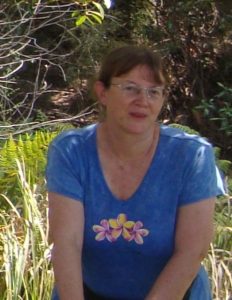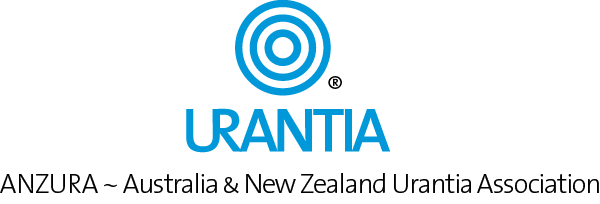 From 2012 Autumn Arena – New Zealand Corner
From 2012 Autumn Arena – New Zealand Corner
April was unseasonably warm in New Zealand this year— the school holidays just finished were absolutely delightful and almost made up for the summer that we didn’t have. It made it quite easy to get up at 5 am on Wednesday 25th to attend the local dawn ANZAC service. I was surprised at how many people were there—nearly 200, of all ages and ethnic backgrounds. This is a trend that became evident some years ago, and continues to grow—this enthusiasm for attending ANZAC services, particularly among young people. It was heart warming to also read about the Australian military presence at the main service in Auckland City—a strong reminder that the A and the NZ have ties going back nearly a hundred years that remain strong today.
My local dawn service was quite traditional—a few well-known hymns, a short address about the sacrifices made by the fallen, who fought so we could enjoy the peaceful life we enjoy today—the Last Post and the lowering of the flag, followed by Reveille and the flag rising, then the march back to the RSA clubrooms. One comment made in the address gave me food for thought—that the campaign at Gallipoli, and the experiences there of NZ and Australian soldiers fighting in the joint army corps forged our respective sense of national identity. I’m not sure how this is interpreted by Australian people, but it is a common idea here, perhaps not accepted by all, but certainly reasonably widespread. It seems that it also led to “a process of national revival” for the Turks, and the ‘hero of Gallipoli, Kemal, would eventually become the founding President of the Turkish Republic”. (‘The end of the campaign – the Gallipoli campaign, 2011).
The Urantia Book has an interesting section on the social value of war (pp. 785-786). It talks about the impetus that war gives to social change and innovations, and mentions, among other values, that it “fostered and solidified nationalism”. Although this was in the context of ancient warfare and olden wars, it seems that this was still true up to World War I, for New Zealand, Australia and Turkey at least.
Whether this is still true is highly debatable—the Melchidezek of Nebadon who wrote this paper (Evolution of Human Government) certainly didn’t think so, and went on to comment that although ‘war has served many valuable purposes in the past, [and] been an indispensable scaffolding in the building of civilization, …it is rapidly becoming culturally bankrupt”, and industrialism is now a far better way to promote social advancement. The paper goes on to state that the “peace of Urantia will be promoted far more by international trade organizations than by all the sentimental sophistry of visionary peace planning”[p. 787]. We can all be proud that ANZAC has evolved into CER, described as “one of the most comprehensive, effective and WTO-compatible free trade agreements in the world” (Closer Economic Relations, n.d.).
Marion Steward
From 2012 Winter Arena – New Zealand Corner
Mid-winter in New Zealand is a quiet, reflective time of year. We have just passed the winter solstice, and increasingly there are celebrations of Matariki, the Maori New Year festival. Matariki is the Maori name for the Pleiades, a star cluster in the constellation of Taurus, which can be seen from anywhere in the world, and used to be an important signal for seasonal celebration in many countries. Stonehenge faces straight towards Matariki. The first viewing of these stars in New Zealand signals the start of a new year, and was marked in the old days by, first, remembering those who had died, and then looking forward to a new year and the coming of the sun. A time of change for the better.
Change is something we are very familiar with in the 21st Century. The Urantia Book predicts a considerable time of constant change and social upheaval for our planet stretching way beyond our current lifetimes. The human race must become reconciled to a procession of changes, adjustments, and readjustments[p.1086]. However, we are warned not to make any great social or economic change …suddenly. Time is essential to all types of human adjustment.[p.911]
Currently in New Zealand we are discussing changing our adoption laws to allow gay couples to adopt, and changing our social welfare laws to discourage single mothers on welfare from having more children. Hopefully this discussion will continue for a while. In our own community, we now need to get accustomed to the fact that the Australian Foundation office has closed, due partly to a change in people’s reading habits from paper to electronic versions. In such a universe of constant change, the small number of things that are changeless stand out like the shining stars of Matariki in the early midwinter dawn. The Father, first and foremost, who stands in the centre of all things, providing stability in an ever-changing universe. The Adjuster, as part of the Father, and Personality, permanence in the presence of change[p. 1225]. Our personality can also provide stability in an ever-changing world, as we look forward to an eternity of change in our progress towards our ultimate destination of the Father embrace.
Marion
From 2012 Summer Arena – New Zealand Corner
At this time last year New Zealand was still basking in the afterglow of the Rugby World Cup — not just the pleasure of victory hard fought- for, but also the enjoyment of the tournament itself — teams of players from many different countries, descending on different towns and cities to play, showing New Zealanders some of their culture, and sharing in ours at the same time. The pre-match rituals became a familiar part of our lives, and one that I particularly appreciated was the way the cameras would roll past a team line-up as their national anthem was playing. In complete contrast to a basketball team, the players in a rugby team are extraordinarily diverse in height and breadth, and it seemed quite marvellous to me that a sport could accommodate such a variety in physique.
An inspection of the readers attending ANZURA conferences reveals similar diversity– not so much in height and breadth ( although that, too!) as in social and religious background, occupation, age, interests, and ways of doing spiritual work in the world. Spending time together and sharing our diversity is a wonderful team-building experience. We can gain strength from our shared vision, comfort from communing with like minds, and inspiration from the stories of the many things that readers are doing as they live the Brotherhood of Man in their own little corners of the world.
Like the All Blacks, and any other rugby team, we need to keep training and learning how to work together, and make the most of each player’s strengths. Our study group meetings and conferences are really good ways to do this, and I am already looking forward to next year’s conference in Canberra, where I hope more players in The Urantia Book ‘team’ will step forward and share their unique ideas, perspectives and spiritual culture, to the benefit of us all.
Marion

